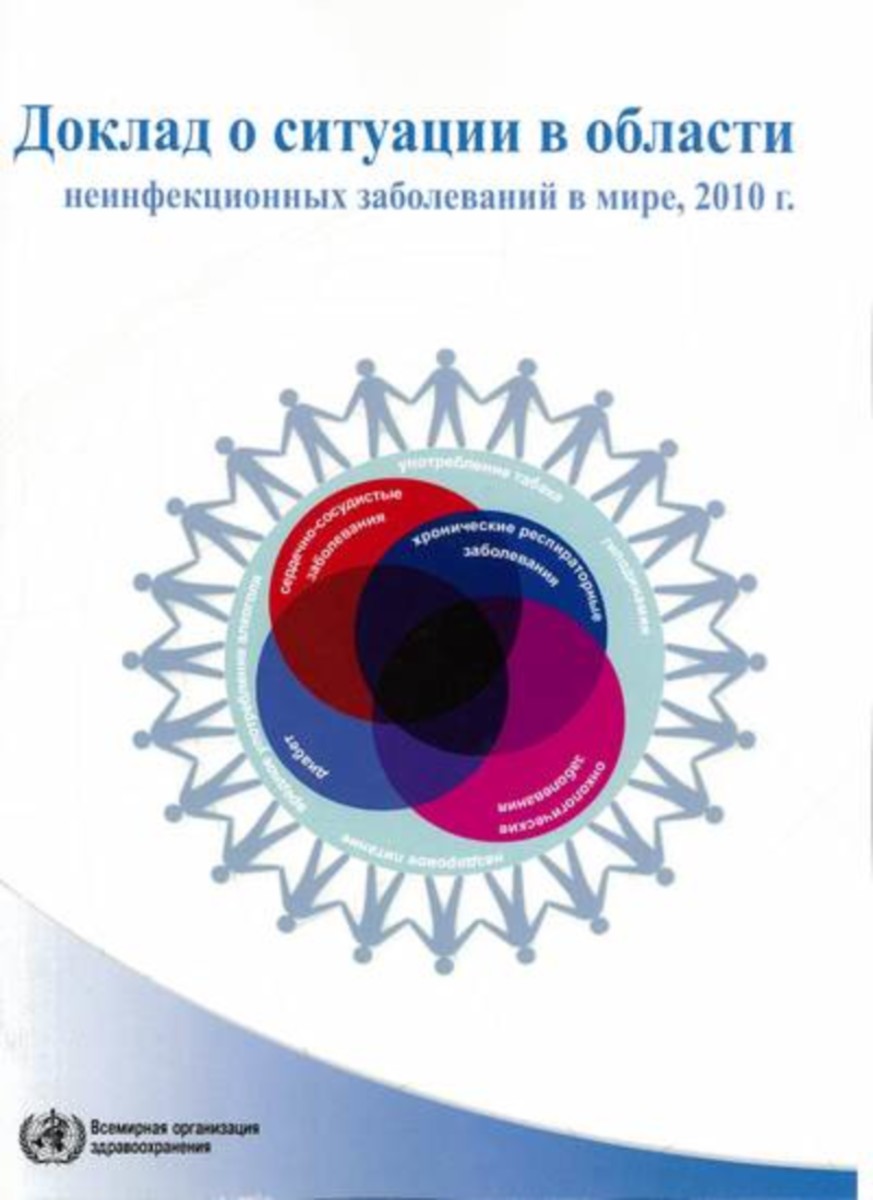Global Status Report on Noncommunicable Diseases 2010
- Publisher
World Health Organization - Published
16th September 2013 - ISBN 9789244564226
- Language Russian
- Pages 179 pp.
- Size 8.25" x 11.75"
The Global Status Report on Noncommunicable Diseases is the first report on the worldwide epidemic of cardiovascular diseases, cancer, diabetes and chronic respiratory diseases, along with their risk factors and determinants. Noncommunicable diseases killed 36 million people in 2008, and a large proportion of these deaths occurred before the age of 60, so during the most productive period of life. The magnitude of these diseases continues to rise, especially in low- and middle-income countries.
This report reviews the current status of noncommunicable diseases and provides a roadmap for reversing the epidemic by strengthening national and global monitoring and surveillance, scaling up the implementation of evidence-based measures to reduce risk factors like tobacco use, unhealthy diet, physical inactivity and harmful alcohol use, and improving access to cost-effective healthcare interventions to prevent complications, disabilities and premature death. This report, and subsequent editions, also provide a baseline for future monitoring of trends and for assessing the progress Member States are making to address the epidemic.
The Global Status Report on Noncommunicable Diseases was developed as part of the implementation of the 2008-2013 Action Plan for the Global Strategy for the Prevention and Control of Noncommunicable Diseases, which was endorsed by the World Health Assembly in 2008.
World Health Organization
World Health Organization is a Specialized Agency of the United Nations, charged to act as the world's directing and coordinating authority on questions of human health. It is responsible for providing leadership on global health matters, shaping the health research agenda, setting norms and standards, articulating evidence-based policy options, providing technical support to countries, and monitoring and assessing health trends.


